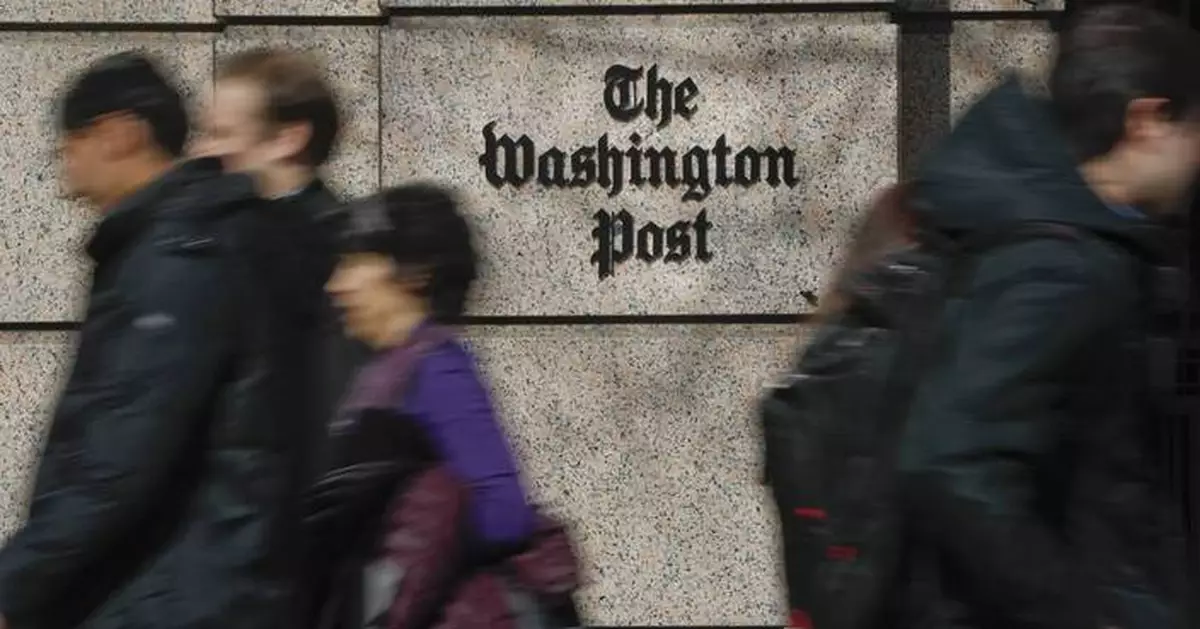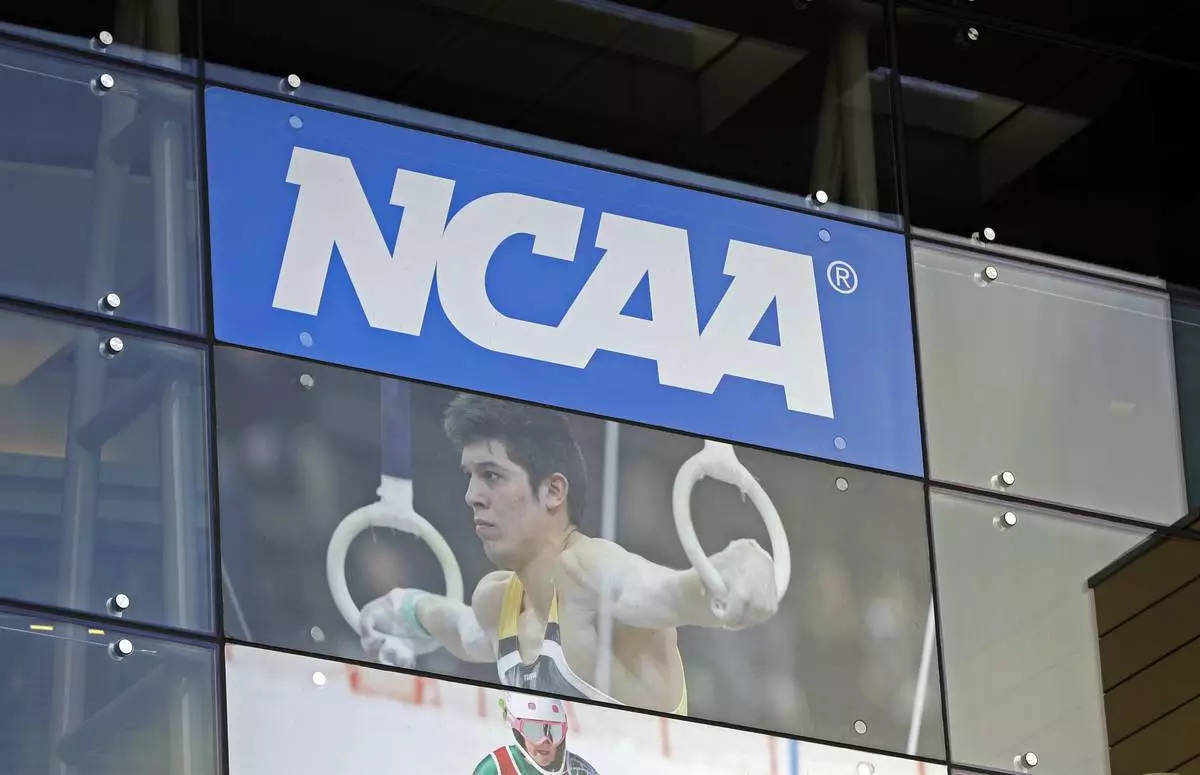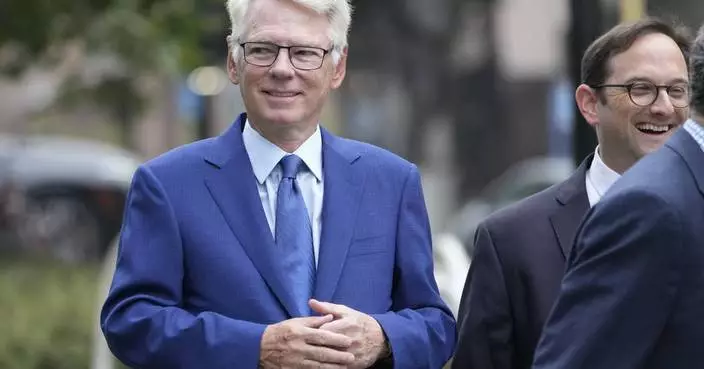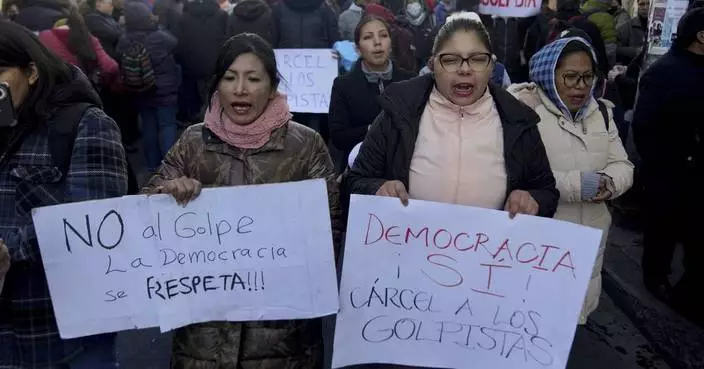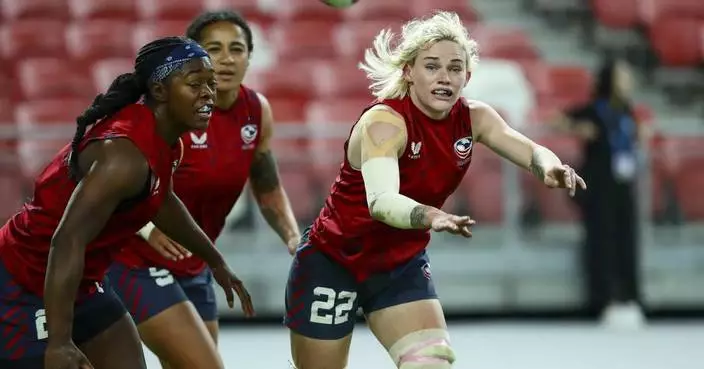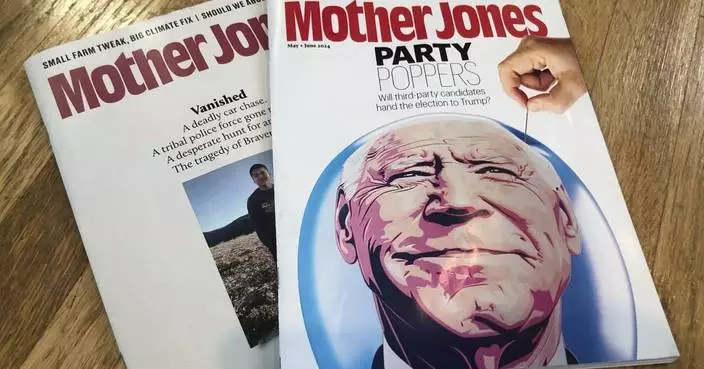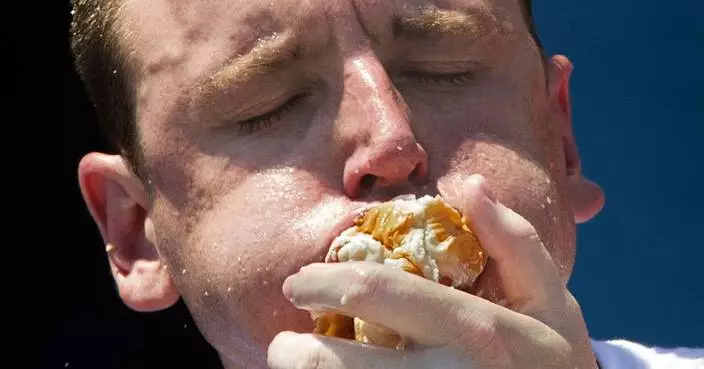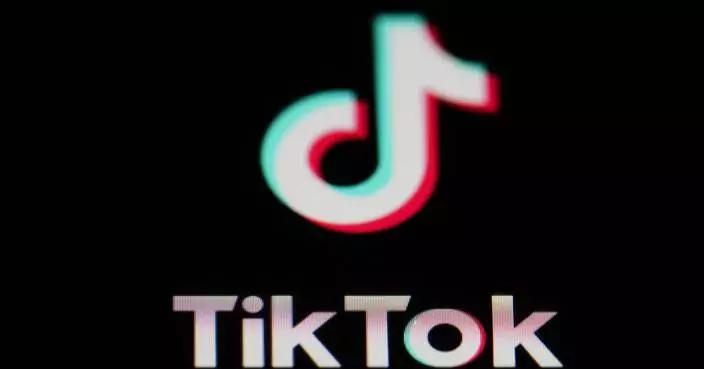NEW YORK (AP) — The Washington Post's new editor Robert Winnett never made it to his job, withdrawing Friday and deciding to stay in England in another upheaval at a news outlet where a reorganization plan has gone disastrously wrong.
He'd been the subject of several published reports — including one in the newsroom that he sought to lead — that questioned whether he followed an ethical compass foreign to American journalists. The Post's CEO and publisher, announced Winnett's decision in a note to staff, and said a recruitment firm would be immediately hired to search for a replacement.
The financially struggling Post had announced Winnett would take over as editor of the core newsroom functions after November's presidential election, while it was also setting up a “third newsroom” devoted to finding new ways for its journalism to make money.
Three weeks ago, then-executive editor Sally Buzbee said that she would quit rather than take a demotion to head this revenue-enhancement effort. Besides Winnett's hiring, former Wall Street Journal editor Matt Murray was brought on as her interim replacement and future leader of the “third newsroom.”
Since then, several published reports had raised questions about the journalistic ethics of Lewis and Winnett stemming from their work in England. For example, both men worked together in a series of scoops about extravagant spending by British politicians fueled by information that they paid a data information company for — a practice frowned upon by American journalists.
The New York Times wrote that both Winnett and Lewis were involved in stories that appeared to be based on fraudulently-obtained phone and business records.
It sparked a newsroom revolt at The Post. David Maraniss, a two-time Pulitzer Prize winner who has worked at the newspaper for four decades, said this week that he didn't know anyone there who thought the situation with the publisher and “supposed new editor” could stand.
“The body is rejecting the transfusion,” Maraniss wrote on Facebook.
Lewis, a former Wall Street Journal publisher and vice chairman of The Associated Press' board of directors, started at The Post earlier this year, hired by billionaire owner Jeff Bezos to stem a costly exodus of readers. The Post had said it had lost $77 million last year.
In a memo to key staff members earlier this week, Bezos assured them that journalistic standards and ethics at the newspaper would not change. “I know you've already heard this from Will, but I wanted to also weigh in directly,” he wrote.
“To be sure, it can't be business as usual at The Post,” Bezos wrote. “The world is evolving rapidly and we do need to change as a business.”
In his Facebook note, Maraniss said that the issue for staff members is integrity, not resistance to change. To that end, it remains to be seen whether Lewis can gain staff support in order to survive himself.
“I think the deal is Will Lewis stays, for now,” former Post media columnist Margaret Sullivan said in a message on X Friday. “Winnett's pre-ouster is the sacrifice/compromise. Was his tenure even less than a single Scaramucci?”
Lewis said Friday that the recruitment firm and process for replacing Winnett will be announced soon. Winnett's sudden hiring — without any indication of an extensive search — had also rankled staff members.
Lewis said that the reorganizations efforts would continue, albeit delayed. He said the “third newsroom” would be operational early next year.
Winnett is staying at the Telegraph in London. Telegraph editor Chris Evans told that newspaper that “he's a talented chap, and their loss is our gain,” according to the Guardian.
Associated Press correspondent Jill Lawless in London contributed to this report. David Bauder writes about media for The Associated Press. Follow him at http://twitter.com/dbauder.
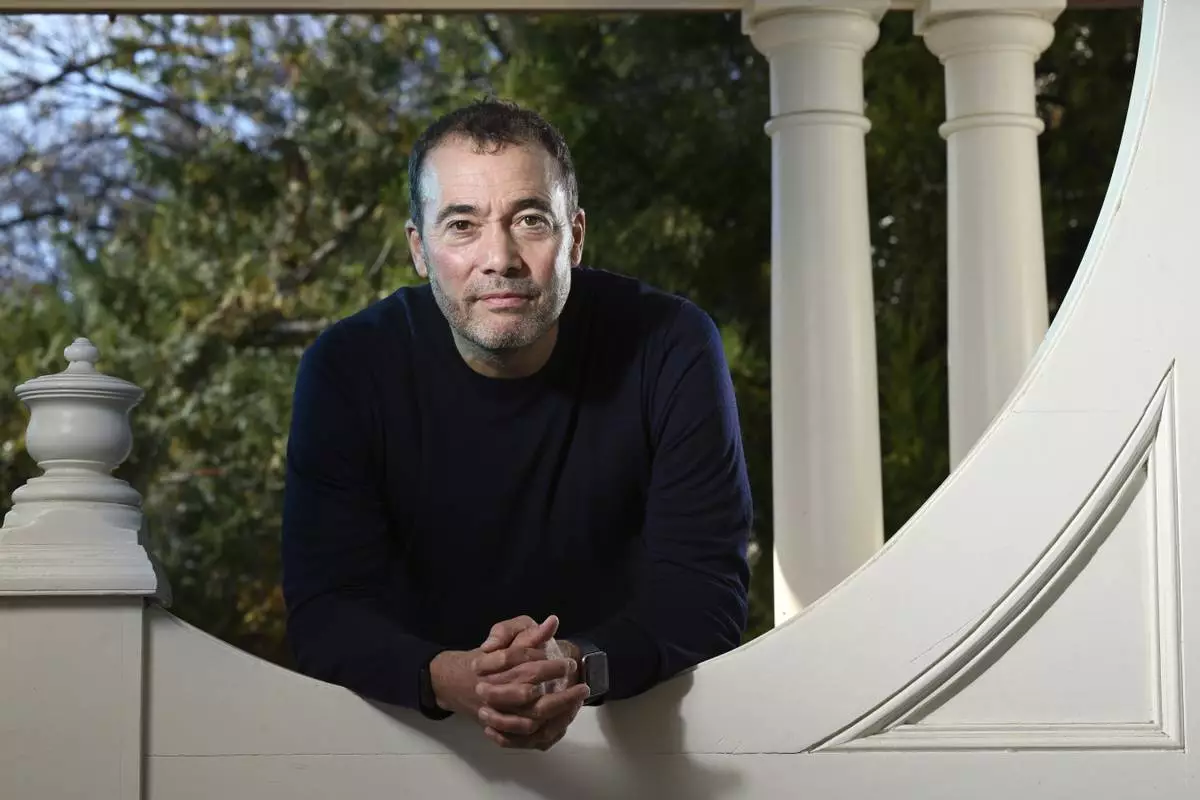
FILE - Will Lewis, newly-appointed publisher and CEO of The Washington Post, poses for a portrait in Washington, Sunday, Nov. 5, 2023. Lewis is facing questions about whether he made efforts to conceal — in his own newspaper and elsewhere — his involvement in a British phone hacking scandal from his time working for Rupert Murdoch a decade ago. The weeklong saga, which began with the abrupt departure of the Post's executive editor Sunday, June 2, 2024 offers a window into differences between approaches to journalism in Britain and the United States.(Matt McClain/The Washington Post via AP, File)
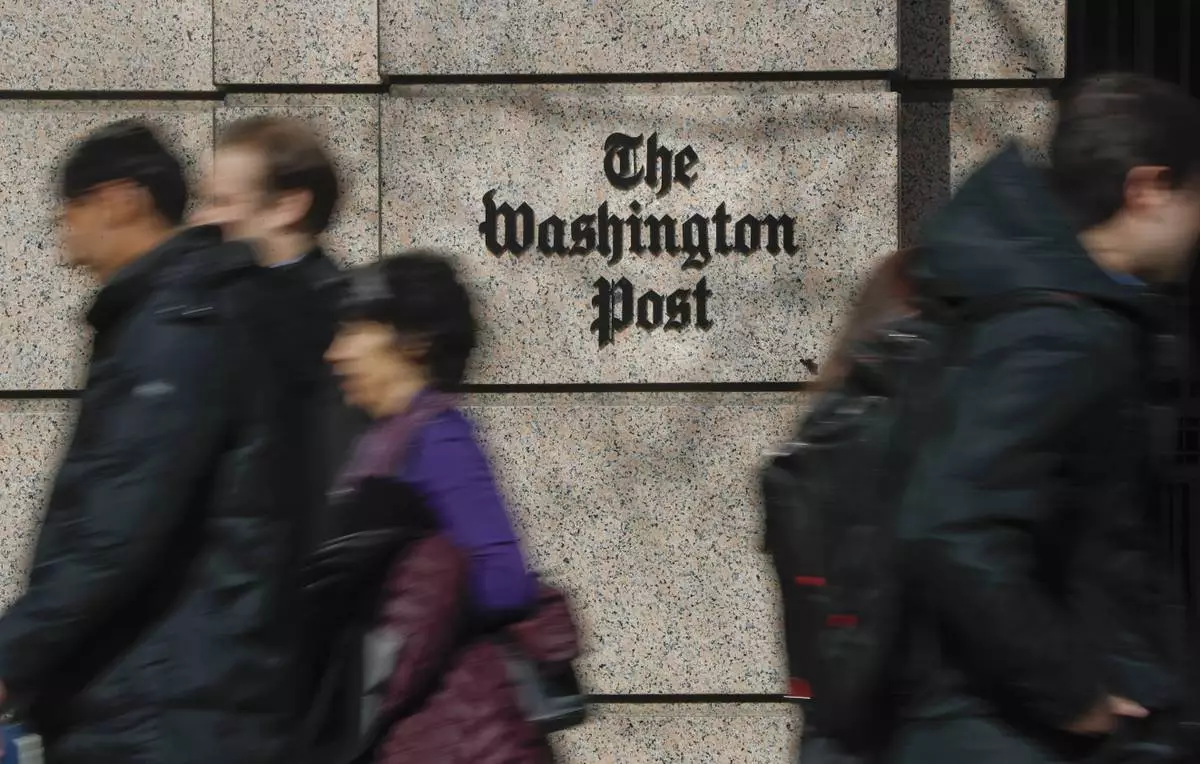
FILE - People walk by the One Franklin Square Building, home of The Washington Post newspaper, in downtown Washington, Feb. 21, 2019. New leaders of The Washington Post are being haunted by their past, with ethical questions raised about their actions as journalists in London that illustrate very different press traditions in the United States and England. (AP Photo/Pablo Martinez Monsivais, File)


